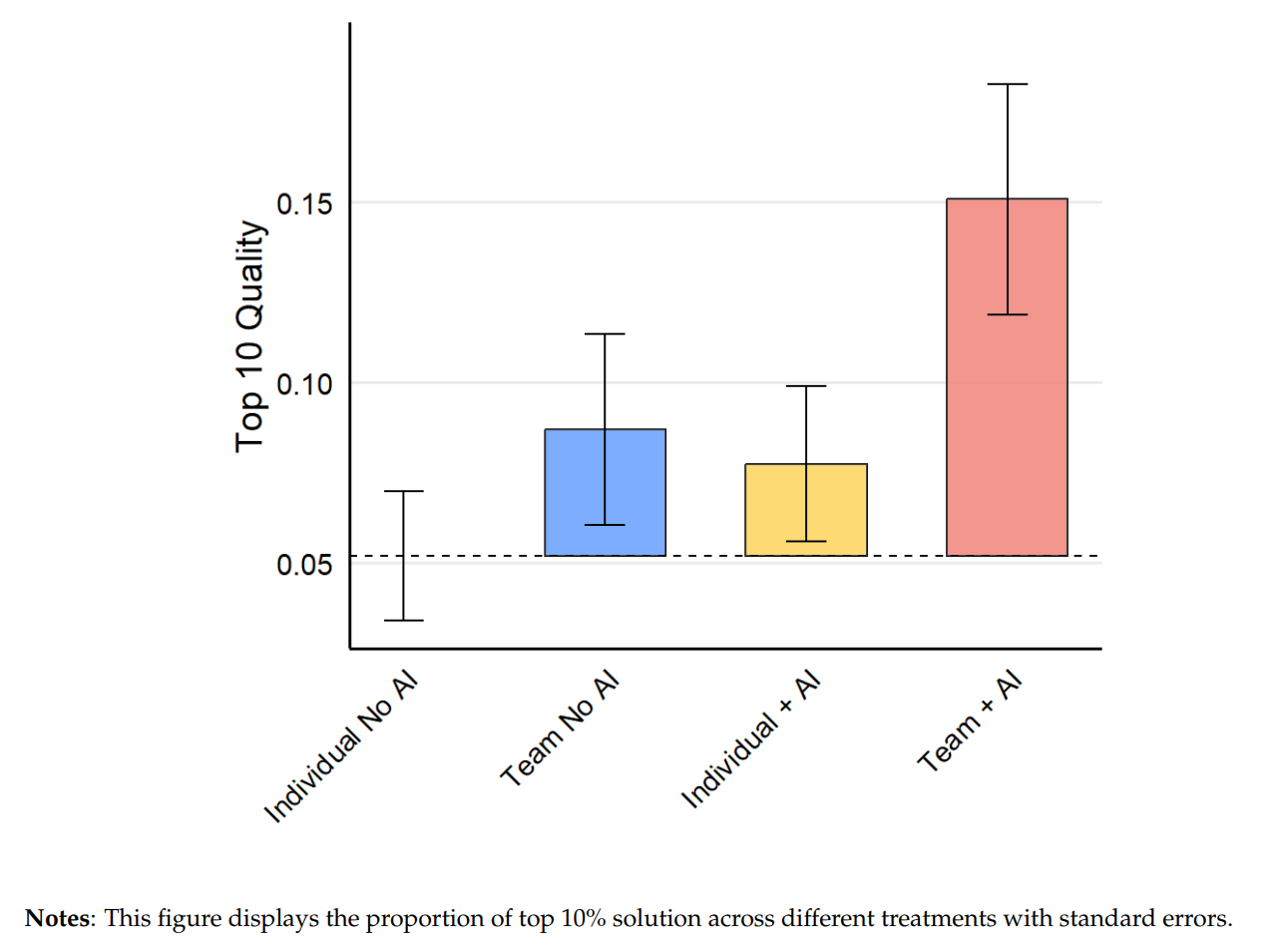This week’s response to ChatGPT’s new picture software reminded us simply how polarised the AI debate has turn out to be. For individuals who aren’t terminally on-line and missed it, Open AI shipped a picture producing software that amongst different issues allowed folks to show pictures into renderings by Studio Ghibli, Dr Seuss or whoever they selected.
Whereas many discovered the outcomes to be enjoyable, others noticed them as proof of AI’s inventive vacancy. This can be a view that displays a wider, vocal camp on-line that sees all AI as corrosive or harmful.
However amongst people who find themselves open to what AI is about to realize there’s a completely different debate occurring.
As synthetic intelligence turns into extra superior, extra succesful and ubiquitous it raises the query of what would be the supply of organisational edge? Till now probably the most extremely prized asset was human expertise, the larger the brains in your aspect the higher your possibilities. The struggle for expertise was actual, firms scrambled to rent the cleverest graduates.
But when the arrival of synthetic basic intelligence makes intelligence ubiquitous will company, or extra particularly human company, the autonomy and company of individuals, be the crucial differentiator?
Let’s get a definition down: company is taken to imply a person’s capability to behave independently and make selections that form their very own lives and have an effect on the world round them. This autonomy is commonly an enormous motivator for us in our jobs, however is commonly squeezed out by bureaucratic cultures.
This debate gathered some steam on-line final month amongst the AI circles. (Right here, right here and right here for instance.) I wouldn’t usually soar into this but it surely highlighted an attention-grabbing and essential debate that will likely be significant for discussions about office tradition. The dialogue was which was extra essential for future success intelligence or company?
If the boosters are proper and AI instruments reward extra mind energy to all of us, if every of us actually is granted the facility of a PhD degree assistant what would decide the outcomes of what would occur subsequent?
What distinction may company have? Being in organisations that gifted us extra company would enable us to make judgment calls, take initiative, and apply a inventive twist to our challenges. This might result in people driving the why and what of labor (setting the objectives and inventive path of labor) and leaving the how of labor, the execution particulars, to the machine.
We already know that having extra company is massively impactful in organisations, a meta-analysis of over 130 analysis research discovered that groups given extra company have been considerably extra inventive than those that have been tightly managed.
Netflix was well-known for asserting that it believed there was a commerce off that occurred as organisations received larger. So fearful have been large firms that workers would go rogue that they created guidelines, types and processes to manage them. However the finish results of these programs was that corporations received slower and extra slowed down with process. Netflix Tradition Doc laid down their various, that workers could be granted ‘freedom and accountability’ to have impression of their jobs.
This debate highlights a choice that organisations aren’t but considering: how are we going to liberate our groups to maneuver sooner when brainpower is not the bottleneck to success?
In a world the place intelligence is not scarce, how are we going to energise our cultures to reward extra company to our prime staff?
How will we transfer sooner, not by means of larger brains however by unblocking initiative? How will we create cultures that free folks as much as maximise their impression?
I’m sure that the majority leaders aren’t getting ready for this future that may very well be two or three years away.

-
Having an AI assistant doubles a employee’s output, proving as efficient as having an actual teammate in accordance with new analysis by Ethan Mollick. The Wharton professor ran an experiment amongst virtually 800 workers at packaged merchandise producer P&G. Workers with a median of 10 years of expertise have been allotted to random situations: some working alone, some with a teammate, some with Open AI’s GPT-4o. Everybody given the AI assistant was educated on the right way to get the very best worth from it. Employees working with AI have been as efficient as these working with a tenured colleague. A median an individual with AI achieved as a lot as a two particular person workforce. The easiest high quality work was achieved by groups with AI (proven within the graph under). Chat GPT additionally helped staff to interrupt down conventional silos with areas that weren’t their typical experience. Hearken to Pocket book LM speak concerning the analysis and its implications on your organisation (it is a good hear and an excellent solution to eat the analysis)


